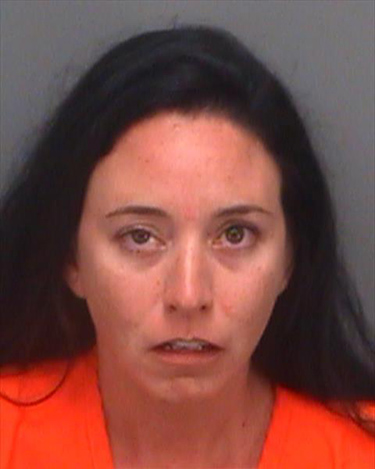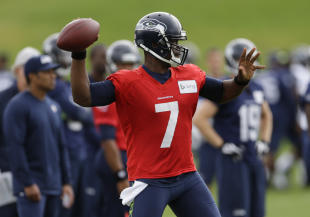- Thread Starter Thread Starter
- #401
Our chubby pal Axl Rose is being a whiny dumbass because he doesn't like an unflattering pic of him on the internet and wants it removed. Guess what Axl, the internet helps sell your music and puts money in your pocket. You don't get to regulate it. You take the good with the bad, that's the deal.
********************************************************************************************
https://theringer.com/https-thering...lebrity-dmca-takedown-c3b697f10e2c#.t5ie9qi96
The Case of the Celebrity DMCA Takedown
That’s Not How You Do It
By Alyssa Bereznak
Staff Writer, The Ringer

Getty
The internet is a cruel place for aging, out-of-shape celebrities. But it may be even worse for those who attempt to censor unflattering photos. No one knows that better right now than Axl Rose. The 54-year-old Guns N’ Roses frontman is currently sparring with Google to remove an unflattering concert photo of him that became an unfortunate meme. But he’s about to learn that that’s not how the internet works.
In 2010, Rose played a passionate show in Canada, which was well-documented by the Winnipeg Free Press’s Boris Minkevich. I say passionate because, well, the photos that emerged from that evening are … intense. Clad in a red bandana, a half-buttoned-up striped office shirt, and ripped jeans, the singer hunched over his microphone and wailed aggressively, as he has been expected to do for his entire adult life.
But visually, the image of a middle-aged, pudgy rock star who still sings songs inspired by his sexier days was too tempting for the internet to ignore. And that’s how the Fat Axl meme was born.

Get it? Replace famous Guns N’ Roses lyrics with lazy junk food imagery — “Take me down to the bakery city / Where the pies have cream and the cakes are tasty” — and you, too, can participate in this very dumb meme. Rose apparently suffered through it silently at its peak popularity in 2011, and then, as embarrassed people with no real financial limits tend to do, aimed to erase it from the memory of pop culture.
This week, according to TorrentFreak, he sent out six Digital Millennium Copyright Act notices to Google over the images in question, essentially claiming that he did not grant permission for photos from that event to be published. (The 1998 law or some interpretation of it has been used by other celebrities — including, unsurprisingly, Taylor Swift — to claim ownership of concert photographers’ work in the past.
Though the statute was originally created to block pirates from spreading copyrighted material, it has since been applied to much broader cases, often to the advantage of larger corporations. Studies over the years show that a good portion of DMCA takedown notices aren’t really legally sound, and in cases like Axl’s, they rarely work.)
Minkevich disputes this, but really, it does not matter. Because the moment Rose’s efforts became public, the Streisand Effect took hold. The Streisand Effect is a web-born theory arguing that any attempt to censor something online will result in the unintended consequence of it spreading more widely than before — in part, due to the passionate belief of internet dwellers that the rich and powerful shouldn’t be able to erase the search results associated with their names.
Appropriately, it’s named after another celebrity, Barbra Streisand, who in 2003 sued the California Coastal Records Project for publishing photos of the coastline that included images of her Malibu mansion. Online mobs were upset by the frivolous lawsuit, and sought revenge by flooding the web with the very images she sought to block. The result: Streisand’s estate remains incredibly Google-able, and she became the unfortunate namesake for a new vehicle of justice on the internet.
Though the Streisand Effect does not discriminate — its targets include shady businesses, schools, and politicians — its most memorable victims are typically rich and famous. In 2008, after the Church of Scientology removed a wacky video of Tom Cruise saying some crazy shit about his crazy religion, it was frustrated by what it referred to as a “pathetic” army of “computer geeks,” who kept resurfacing the footage.
Most famously, when Beyoncé’s publicist emailed BuzzFeed asking the site to remove several photos from her (Earth-shattering) 2013 Super Bowl performance, the site instead published a post titled “The ‘Unflattering’ Photos Beyoncé’s Publicist Doesn’t Want You to See,” which has been viewed more than 2.2 million times.
All this is to say, Rose may not have realized his modest DMCA request would be met by the hot fury of the internet. He could’ve taken a tip from Drake, and used this whole situation as inspiration for a funny Saturday Night Live skit, but instead he has picked a battle he cannot win. Worst yet, he picked that battle six years after the actual event. All I have to say is: Welcome to the jungle, it gets worse here every day.
********************************************************************************************
https://theringer.com/https-thering...lebrity-dmca-takedown-c3b697f10e2c#.t5ie9qi96
The Case of the Celebrity DMCA Takedown
That’s Not How You Do It
By Alyssa Bereznak
Staff Writer, The Ringer

Getty
The internet is a cruel place for aging, out-of-shape celebrities. But it may be even worse for those who attempt to censor unflattering photos. No one knows that better right now than Axl Rose. The 54-year-old Guns N’ Roses frontman is currently sparring with Google to remove an unflattering concert photo of him that became an unfortunate meme. But he’s about to learn that that’s not how the internet works.
In 2010, Rose played a passionate show in Canada, which was well-documented by the Winnipeg Free Press’s Boris Minkevich. I say passionate because, well, the photos that emerged from that evening are … intense. Clad in a red bandana, a half-buttoned-up striped office shirt, and ripped jeans, the singer hunched over his microphone and wailed aggressively, as he has been expected to do for his entire adult life.
But visually, the image of a middle-aged, pudgy rock star who still sings songs inspired by his sexier days was too tempting for the internet to ignore. And that’s how the Fat Axl meme was born.

Get it? Replace famous Guns N’ Roses lyrics with lazy junk food imagery — “Take me down to the bakery city / Where the pies have cream and the cakes are tasty” — and you, too, can participate in this very dumb meme. Rose apparently suffered through it silently at its peak popularity in 2011, and then, as embarrassed people with no real financial limits tend to do, aimed to erase it from the memory of pop culture.
This week, according to TorrentFreak, he sent out six Digital Millennium Copyright Act notices to Google over the images in question, essentially claiming that he did not grant permission for photos from that event to be published. (The 1998 law or some interpretation of it has been used by other celebrities — including, unsurprisingly, Taylor Swift — to claim ownership of concert photographers’ work in the past.
Though the statute was originally created to block pirates from spreading copyrighted material, it has since been applied to much broader cases, often to the advantage of larger corporations. Studies over the years show that a good portion of DMCA takedown notices aren’t really legally sound, and in cases like Axl’s, they rarely work.)
Minkevich disputes this, but really, it does not matter. Because the moment Rose’s efforts became public, the Streisand Effect took hold. The Streisand Effect is a web-born theory arguing that any attempt to censor something online will result in the unintended consequence of it spreading more widely than before — in part, due to the passionate belief of internet dwellers that the rich and powerful shouldn’t be able to erase the search results associated with their names.
Appropriately, it’s named after another celebrity, Barbra Streisand, who in 2003 sued the California Coastal Records Project for publishing photos of the coastline that included images of her Malibu mansion. Online mobs were upset by the frivolous lawsuit, and sought revenge by flooding the web with the very images she sought to block. The result: Streisand’s estate remains incredibly Google-able, and she became the unfortunate namesake for a new vehicle of justice on the internet.
Though the Streisand Effect does not discriminate — its targets include shady businesses, schools, and politicians — its most memorable victims are typically rich and famous. In 2008, after the Church of Scientology removed a wacky video of Tom Cruise saying some crazy shit about his crazy religion, it was frustrated by what it referred to as a “pathetic” army of “computer geeks,” who kept resurfacing the footage.
Most famously, when Beyoncé’s publicist emailed BuzzFeed asking the site to remove several photos from her (Earth-shattering) 2013 Super Bowl performance, the site instead published a post titled “The ‘Unflattering’ Photos Beyoncé’s Publicist Doesn’t Want You to See,” which has been viewed more than 2.2 million times.
All this is to say, Rose may not have realized his modest DMCA request would be met by the hot fury of the internet. He could’ve taken a tip from Drake, and used this whole situation as inspiration for a funny Saturday Night Live skit, but instead he has picked a battle he cannot win. Worst yet, he picked that battle six years after the actual event. All I have to say is: Welcome to the jungle, it gets worse here every day.







